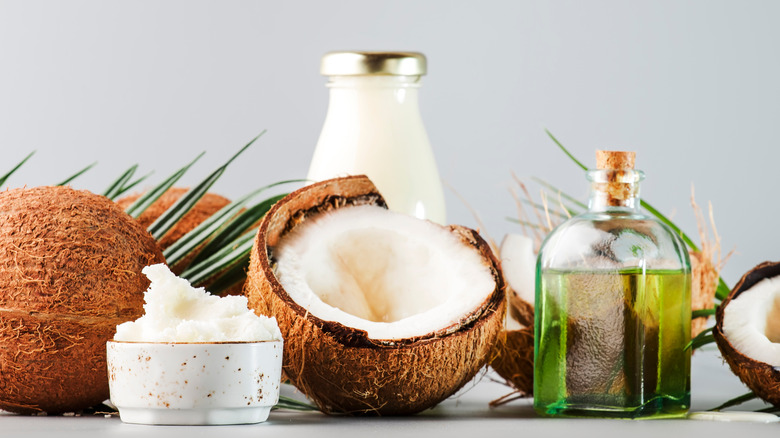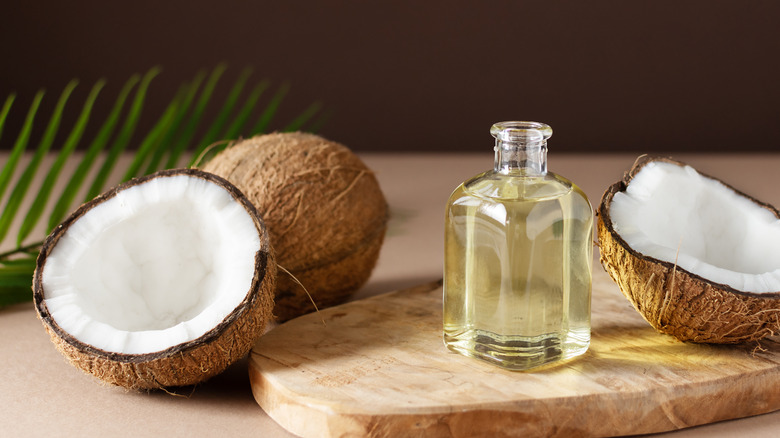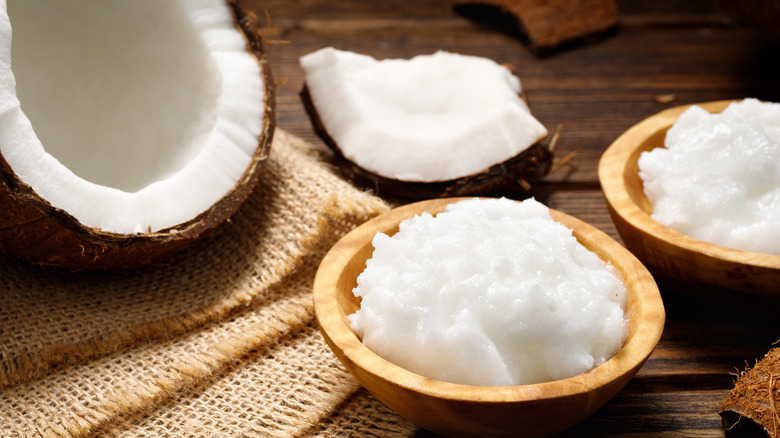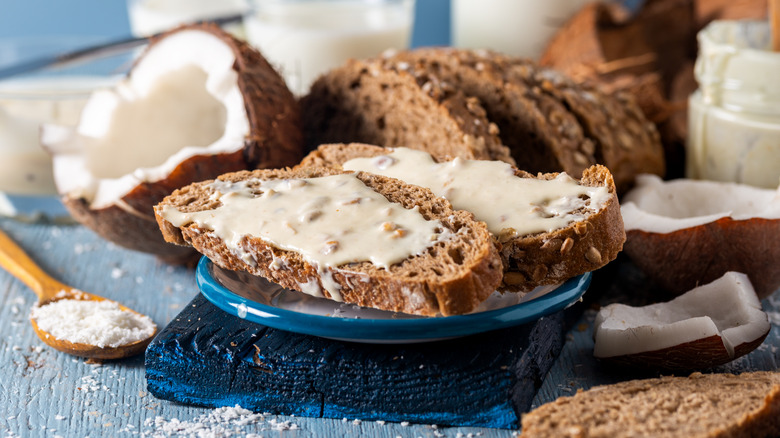When To Use Coconut Butter Vs. Coconut Oil
Let's say you're in a specialty food store or a health food store and you find yourself face-to-face with coconut oil and coconut butter. Do you know the differences between the two? While they both come from the meat of the coconut, they are drastically different products.
Both coconut oil and coconut butter are considered medium-chain fatty acids, that can help boost immunity, ward off viruses, and help prevent diseases, per Dr. Axe. While you can get many of the same health benefits from coconut oil and coconut butter, the way they are made means they are intended for different types of food preparations. It's important not to get the two confused because they don't work the same way, especially when exposed to heat. While coconut oil can be used for high-heat cooking, coconut butter will burn when exposed to too much heat.
How else do they differ? Here are some other elements that make these two coconut-based products unique, as well as the best ways to use them in your kitchen.
Coconut oil
Coconut oil is the oil that is derived from the flesh of a coconut and is most often used for cooking and baking. You can pretty much substitute coconut oil anywhere you'd use olive oil or butter. When refined, coconut oil's smoking point is higher than olive oil, so it's considered better to use for sautéing over high heat. While some might worry about having a leftover coconut flavor when sautéing with coconut oil, the flavor of the oil is very mild and not very coconut-esq at all. The smell is more where you'll make a connection to traditional coconut flavor.
For those concerned, you can always use coconut oil in recipes where coconut flavor would compliment the dish, such as in Indian dishes, or Asian-inspired stir fry recipes. Coconut oil is also ideal for lactose-free baking since its natural flavor lends itself well to sweets and it has a similar richness to butter. Coconut oil is pure oil, which means it contains many of the benefits of coconut but doesn't contain any fiber.
Coconut butter
Coconut butter is more closely related to a nut butter or seed butter than it is to coconut oil. Coconut butter is created when the meat of the coconut is pulverized into a spreadable paste. For this reason, you are getting all of the fiber, fat, and nutrients that you'd get from eating coconut flesh raw or shredded. While coconut oil may not have a very intense coconut flavor, coconut butter is basically pure coconut vibes.
Pure coconut butter shouldn't have sugar added to it. So, while the flavor might be super coconutty, it's not going to taste as sweet as a sweetened coconut dessert. You can make your own coconut butter by pureeing full-fat, unsweetened shredded coconut until it creates a butter-like texture. While coconut oil might change its consistency based on the temperature it's being stored, coconut butter usually maintains the same consistency.
When to use each
While coconut oil is great for cooking, coconut butter isn't as versatile and will respond to heat differently than coconut oil. If you think about olive oil as compared to olive tapenade, or sunflower oil compared to sunflower butter, coconut oil and coconut butter are similar. Coconut oil is simply an oil while coconut butter is a puree of coconut flesh.
The easiest way to remember how to use the two is to use coconut oil for things that need to be cooked or baked and to use coconut butter on top of, or in addition to dishes and ingredients that are already cooked or baked. For example, you might spread coconut butter on top of bread, toast, or baked good. You might drizzle it on top of a baked sweet potato. If you are looking to add a bit more fiber and healthy fat to your breakfast, you can add coconut butter to oatmeal, or drizzle it on top of waffles or pancakes. Coconut oil, on the other hand, is perfect for adding to your baked goods recipes, or for cooking and sautéing meat and vegetables.
Next time you come face to face with coconut oil and coconut butter you'll know which is which and how to best use them.



